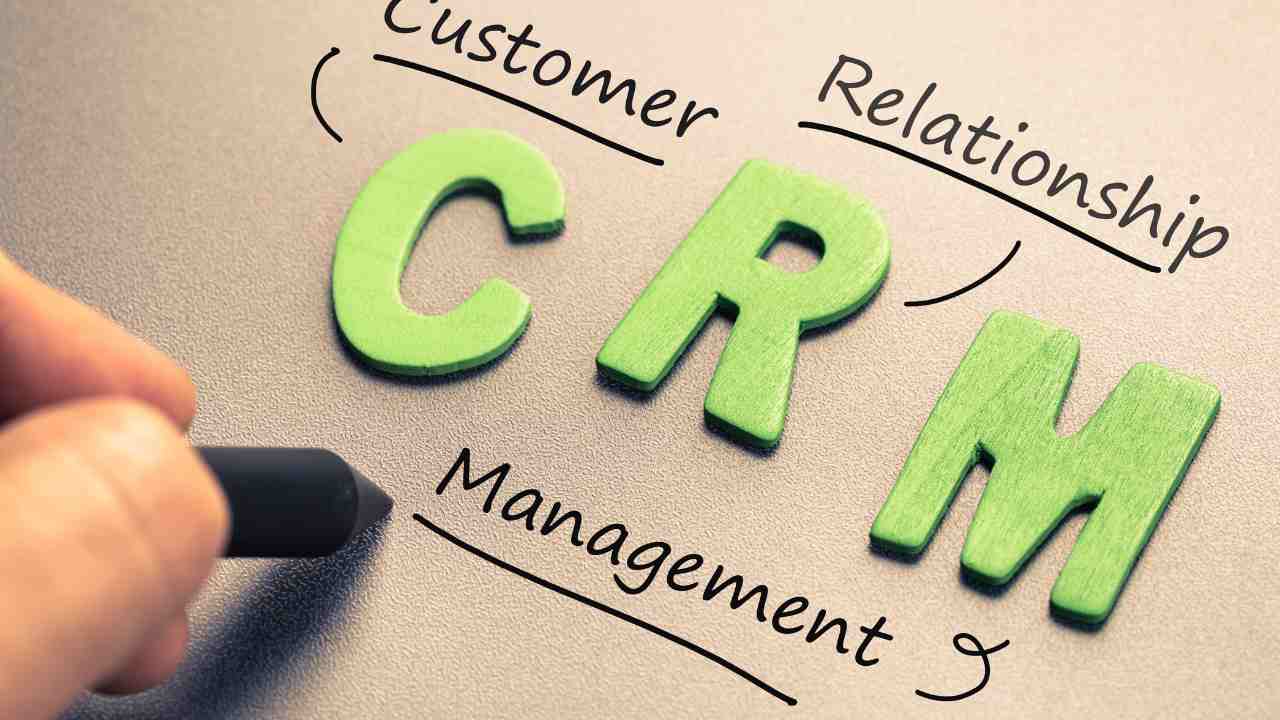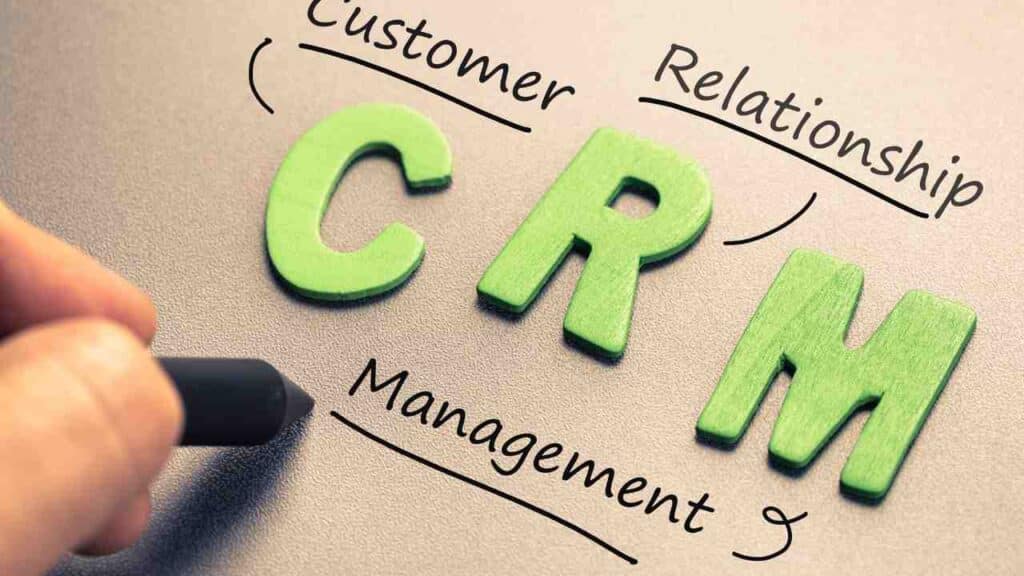Automating Business Tasks with CRM

Running a successful business requires efficient management of various tasks and processes. From lead generation to customer support, businesses need to streamline their operations to maximize productivity and profitability. One powerful tool that can help automate and streamline these tasks is a Customer Relationship Management (CRM) system. In this article, we will explore the benefits of automating business tasks with CRM and how it can revolutionize the way businesses operate.
What is CRM?
CRM stands for Customer Relationship Management. It is a software solution that helps businesses manage their interactions and relationships with customers, prospects, and other stakeholders. A CRM system provides a centralized database where businesses can store and access customer information, track sales activities, manage marketing campaigns, and more.
CRM systems have evolved over the years to become comprehensive platforms that integrate various business functions. They offer features such as contact management, lead tracking, sales pipeline management, email marketing, customer support, and analytics. By automating these tasks, businesses can save time, improve efficiency, and enhance customer satisfaction.
The Benefits of Automating Business Tasks with CRM
Automating business tasks with CRM can bring numerous benefits to organizations of all sizes. Let’s explore some of the key advantages:
1. Improved Efficiency
Manual data entry and repetitive tasks can be time-consuming and prone to errors. By automating these tasks with CRM, businesses can eliminate manual work and free up valuable time for employees to focus on more strategic activities. For example, instead of manually entering customer data into spreadsheets, CRM systems can automatically capture and update customer information from various sources, such as website forms or email interactions.
Case Study: XYZ Company
XYZ Company, a small e-commerce business, implemented a CRM system to automate its order management process. Previously, employees had to manually enter order details into their system, which was time-consuming and led to occasional errors. With CRM automation, order information is now automatically captured from the website and integrated into their CRM system. This has significantly improved order processing time and accuracy, resulting in higher customer satisfaction.
2. Enhanced Customer Experience
A CRM system allows businesses to have a 360-degree view of their customers. By centralizing customer data, businesses can better understand their customers’ needs, preferences, and purchase history. This enables personalized and targeted communication, leading to a more engaging customer experience. For example, CRM systems can automate personalized email campaigns based on customer behavior and preferences, resulting in higher open and click-through rates.
Case Study: ABC Agency
ABC Agency, a marketing agency, implemented a CRM system to automate its lead nurturing process. By tracking customer interactions and preferences, they were able to send targeted emails to prospects at different stages of the sales funnel. This resulted in a 30% increase in lead conversion rates and a 20% increase in customer retention.
3. Streamlined Sales Process
A CRM system can streamline the sales process by providing a clear overview of the sales pipeline, tracking leads and opportunities, and automating follow-up tasks. This ensures that sales teams stay organized and focused on closing deals. CRM systems can also generate reports and analytics to help businesses identify bottlenecks in the sales process and make data-driven decisions to improve sales performance.
Case Study: PQR Corporation
PQR Corporation, a B2B software company, implemented a CRM system to automate their sales process. By tracking leads and opportunities in the CRM system, they were able to identify areas where leads were getting stuck in the pipeline. With this insight, they made adjustments to their sales strategy and provided additional training to their sales team. As a result, their sales conversion rate increased by 15% within six months.
4. Effective Marketing Campaigns
CRM systems can help businesses plan, execute, and track their marketing campaigns more effectively. By segmenting customers based on their demographics, behavior, or purchase history, businesses can create targeted campaigns that resonate with their audience. CRM systems can also automate email marketing, social media posting, and other marketing activities, ensuring consistent and timely communication with customers.
Case Study: LMN Retail
LMN Retail, a retail chain, implemented a CRM system to automate its marketing campaigns. By segmenting their customer database based on purchase history, they were able to send personalized offers and promotions to different customer segments. This resulted in a 25% increase in customer engagement and a 10% increase in average order value.
Choosing the Right CRM System
When selecting a CRM system for your business, it’s important to consider your specific needs and requirements. Here are some factors to consider:
- Scalability: Ensure that the CRM system can accommodate your business’s growth and handle increasing data volumes.
- Integration: Look for a CRM system that integrates with your existing tools and software, such as email marketing platforms or accounting software.
- User-Friendliness: Choose a CRM system that is intuitive and easy to use, as this will encourage adoption among your employees.
- Customization: Consider whether the CRM system allows customization to fit your business processes and workflows.
- Support and Training: Evaluate the level of support and training provided by the CRM vendor to ensure a smooth implementation and ongoing usage.
Get Your FREE 14-Day Trial and Take Your Business To The Next Level with an All-In-One Sales and Marketing Platform for businesses, agencies and marketers.
Automating business tasks with CRM can revolutionize the way businesses operate. By improving efficiency, enhancing the customer experience, streamlining the sales process, and enabling effective marketing campaigns, CRM systems can help businesses achieve higher productivity and profitability. When choosing a CRM system, it’s important to consider factors such as scalability, integration, user-friendliness, customization, and support. With the right CRM system in place, businesses can unlock their full potential and stay ahead in today’s competitive market.
Visit https://SaasExpert.ca – Your All-In-One Sales and Marketing Platform for small businesses, agency owners, and marketers.
Learn more about “Automating CRM Processes Streamlining Sales and Marketing Efforts” here.
Frequently asked questions about Automating Business Tasks with CRM
Why should businesses consider automating tasks using a CRM platform? 🤖
Business automation through CRM brings a cascade of advantages:
Productivity Boost: By automating repetitive tasks, your team can focus on high-impact activities, enhancing overall efficiency 🚀.
Improved Data Accuracy: Automation minimizes manual data entry, reducing the chances of human errors 🎯.
Enhanced Customer Experiences: Automated responses, task reminders, and follow-ups make interactions with customers smooth and consistent 💖.
Actionable Insights: CRMs offer real-time reporting and dashboards, giving businesses insights they can act upon promptly 📈.
Which business tasks can be effectively automated using a CRM system? 🔄
The automation potential with CRM is vast:
Contact Management: Automatically store and update contact information, ensuring a single source of truth 📖.
Marketing Campaigns: Launch and track email or social campaigns based on user behavior or segmentation 📢.
Sales Workflows: From lead scoring to quote generation, automate various stages of the sales funnel 🛒.
Customer Service: Log tickets, send responses, or route issues to the right department seamlessly 🎧.
How can CRM automation help small businesses scale faster? 🌱➡️🌳
CRM automation is a boon for growth-oriented small businesses:
Time-saving: By reducing time on manual tasks, small teams can do more with fewer resources ⏳.
Streamlined Operations: Uniform processes set a strong foundation for businesses to scale smoothly 📊.
Enhanced Customer Retention: By maintaining consistent customer interactions, small businesses can foster loyalty and repeat business 💕.
Data-Driven Decisions: Access to real-time business data helps in informed decision-making, fueling faster growth 📈.
Are there best practices to follow while automating business tasks through CRM? ⚙️
Certainly! Ensuring CRM automation success involves some best practices:
Map Processes First: Understand and outline your business processes before jumping into automation 🗺️.
Train the Team: Ensure everyone knows how to use and benefit from the CRM’s automated features 🎓.
Monitor & Optimize: Regularly review the automated processes, and refine them based on feedback and changing business needs 🔄.
Keep the Human Touch: Automation should enhance, not replace, the human element in customer interactions ❤️.
Is there a risk of over-dependence on CRM for task automation? 🚫
While CRMs offer amazing automation capabilities, there are considerations:
Over-Automation Concerns: Businesses might lose the personal touch in customer engagements if they over-rely on automation 🤷♂️.
Data Overwhelm: Without proper filters, automated data collection might lead to an overload of irrelevant information 🌊.
Potential System Failures: Total dependence on CRM for all tasks can pose risks if there are downtimes or glitches ⚡.
Flexibility Challenges: Sticking too rigidly to automated processes might reduce a business’s agility in adapting to sudden changes 🔄.







